The past 2018 was marked by a number of key events and achievements which stimulated the development of regional environmental partnership and the resolution of pressing regional issues, including water use. In particular, on March 15, 2018, the first working consultative meeting of the heads of Central Asian states was held in Astana. The presidents of Kazakhstan, Kyrgyzstan, Tajikistan, Uzbekistan and the Speaker of the Parliament of Turkmenistan sat down at the negotiating table to discuss the most pressing challenges of the region. The heads of Central Asian states haven't met in such composition for almost 10 years. In the context of regional security, special attention was paid to environmental issues. The meeting gave a vital push to more effective multilateral cooperation in all spheres of the life of the region. The parties agreed to meet in this format every year on the eve of the common holiday Nauryz in order to coordinate positions.
The next landmark meeting for the region was held on August 24 in Turkmenistan. The first in nine years summit of the heads of the founding states of the International Fund for Saving the Aral Sea was held in the city of Turkmenbashi. The meeting was attended by presidents of all five Central Asian countries. A communiqué was signed as a result of an open dialogue between the presidents of the countries. The document drew attention to the critical shortcomings in the development work in the Aral Sea basin. The communiqué also reflected further tasks to strengthen cooperation on this issue.
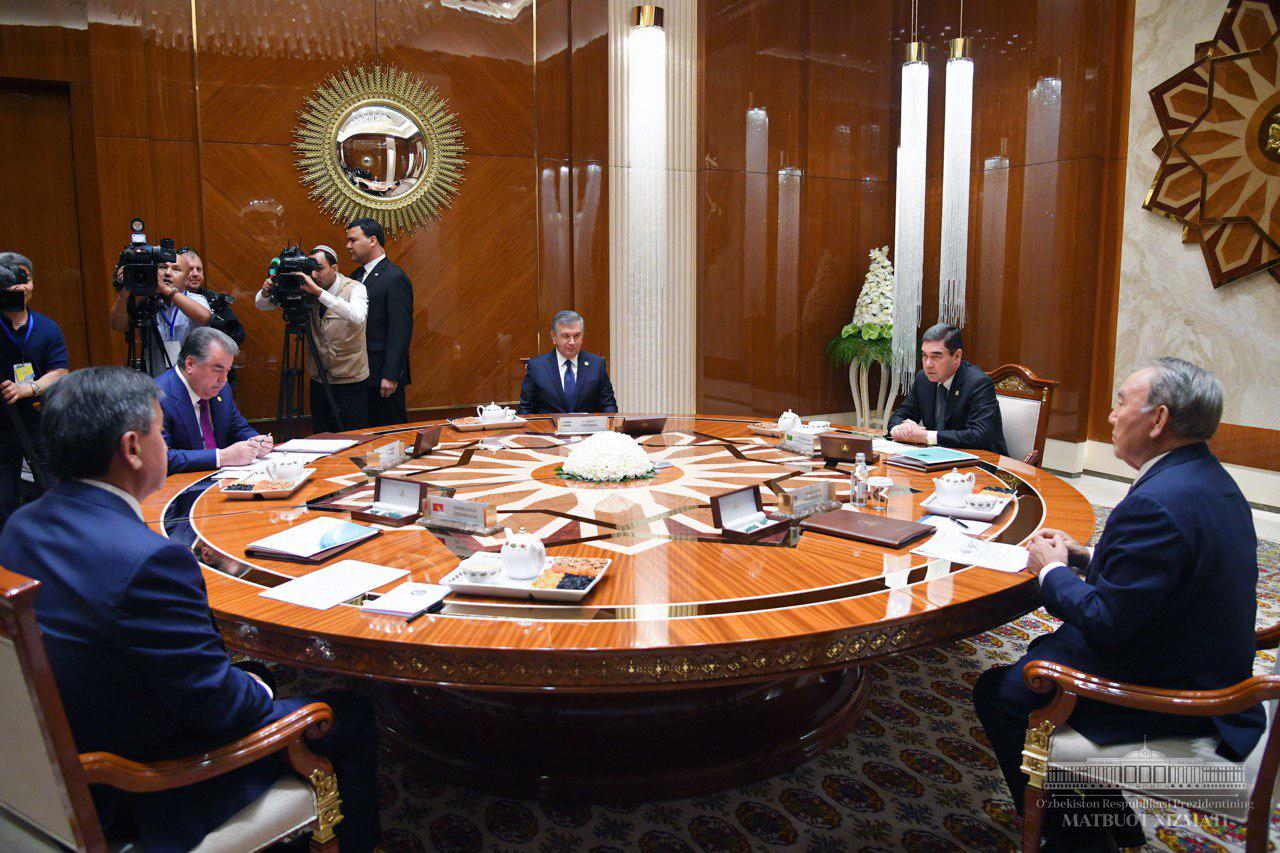
In particular, it noted the importance of consolidating efforts to comprehensively address the problems associated with the improvement of the socio-economic and environmental situation in the Aral Sea Basin, especially in areas affected by the environmental crisis. In addition, exact proposals were made: reforming the International Fund for Saving the Aral Sea, creating a water and energy consortium, organizing joint training and staff development. “Such joint actions have become possible due to the change in political conjuncture in the region. There have been positive changes in relations between the countries of Central Asia. Relationships have become more open and pragmatic. Now all questions can be discussed without making any claims to each other. That is, to discuss the essence of the problem, and not to complain,” noted Dr Iskandar Abdullaev, Executive Director of the Regional Environmental Centre for Central Asia.
Indeed, such high-level meetings may help to speed up the resolution of critical regional challenges that have been sources of tension in the region for a long time. In this context, CAREC also focuses its activities on maintaining and strengthening water and energy cooperation and mutual understanding in Central Asia.
CAREC strengths its role
Considering the change of the regional political situation, the role of CAREC has intensified over the past year. Together with the international partners, government bodies, local governments and civil society in Central Asia, CAREC organized a large number of notable environmental activities.
We should separately mention one of the largest environmental events in the region - the Central Asian International Environmental Forum (CAIEF), which was successfully held in Tashkent from June 5 to 8.
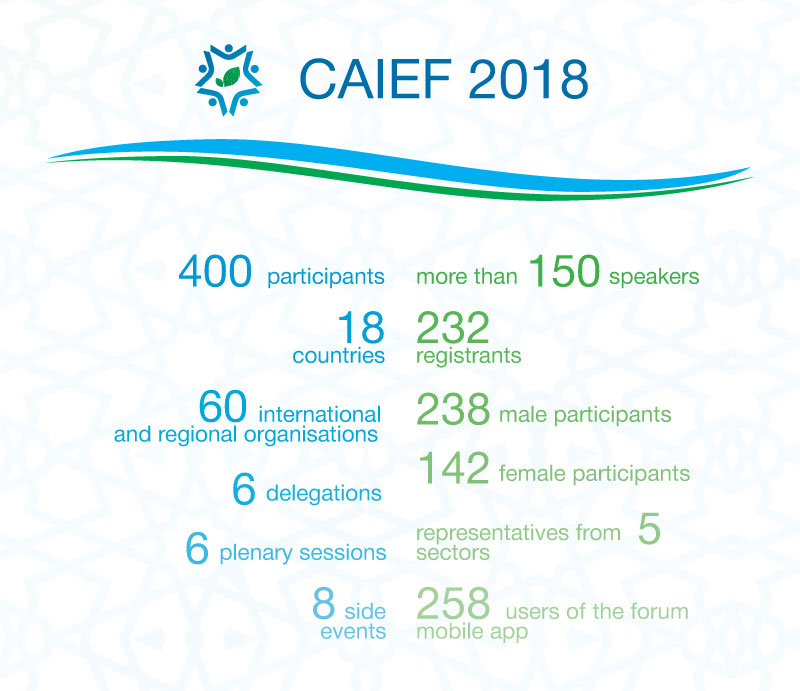
Another important large-scale event of CAREC was the first Central Asia Climate Change Conference, held January 24-25 in Almaty. In addition, the 9th Central Asian Environment Leadership Program for Sustainable Development (CALP) was successfully carried out.

All of the above activities of CAREC were aimed at strengthening cooperation at the regional level in various areas of environmental protection. The substantive agenda of events provided ample opportunities for the exchange of views and informal communication among participants, experts of various levels.
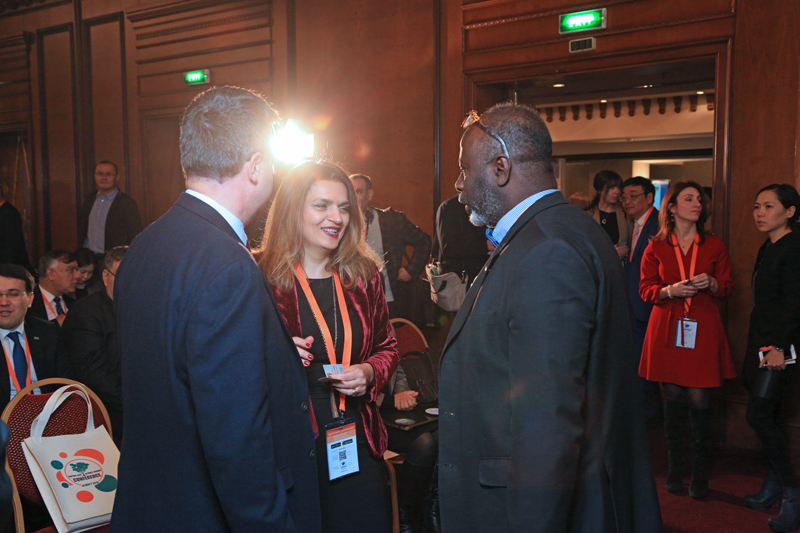
In 2018, CAREC also continued to develop the regional cooperation through consistent work with representatives of the Ministries of Foreign Affairs and Parliaments of Central Asian countries and Afghanistan. In January 2018, the corresponding regional meeting was held in Almaty. It is noteworthy that the representatives of Afghanistan participated in the meeting for the first time. Also, at the end of the year, within the USAID project Smart Waters, the first Central Asian Small Basin Councils Forum was held in Bishkek.
CAREC is becoming a think tank
Many other events were held at both the national and regional levels. Among which a significant part is occupied by seminars and trainings. Capacity building is one of the most important directions of activities of the organization. It is also worth noting that CAREC is conducting strategic changes in this area.
Due to the need for international expertise and qualified personnel in the region, CAREC intends to transfer the activities of the country offices to the format of regional centres of knowledge and innovation. Such centres will specialize in specific areas of environmental protection, which are reflected in CAREC’s programmes: climate change, nexus - environmental management, environment and health, education for sustainable development, etc. As a result of such changes, the CAREC country offices will be able not only to coordinate. The main task will be the knowledge production and use of expertise accumulated over the years of activity.
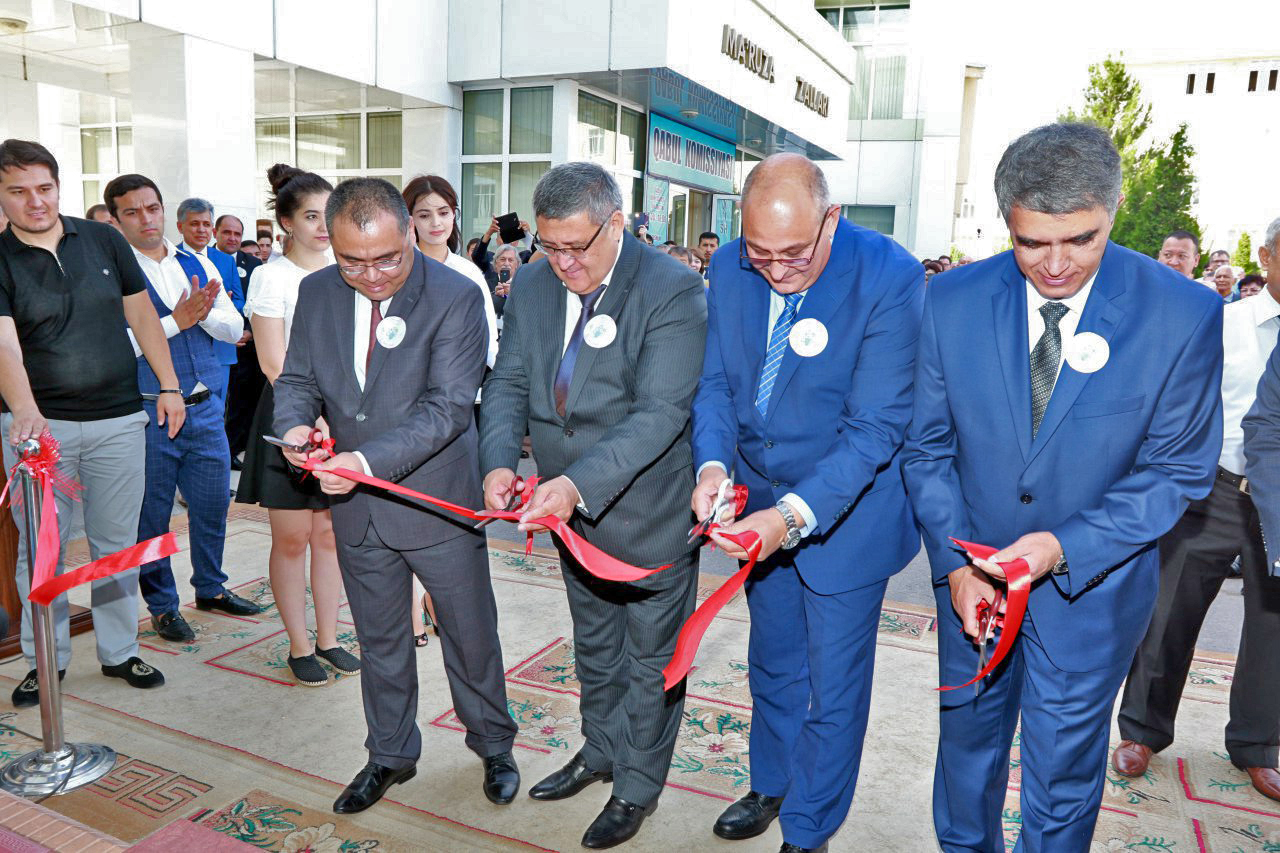
The first of the planned centres was opened in Tashkent as early as 2018. On June 8, CAREC-TIIAME Innovations and Scientific Research Cluster was launched, which became the first innovation centre on sustainable development in Central Asia. The purpose of this cluster is to ensure the effectiveness and sustainability of development projects by transferring know-how to students and young researchers, promoting scientific activities among young people and developing critical thinking skills.
New areas of cooperation
It is also worth noting that CAREC not only actively holds meetings, trainings and conferences but also regularly participates in national, regional and global events in the field of environmental protection. For example, on March 21, CAREC and the Executive Committee of the International Fund for Saving the Aral Sea (EC IFAS) held a joint event within the 8th World Water Forum (Brazil), the largest event in the field of water resources in the world. CAREC also facilitated the participation of the Central Asian delegation in other global events: the 6th Asia-Pacific Climate Change Adaptation Forum and the 13th Conference of the Parties to the Ramsar Convention.
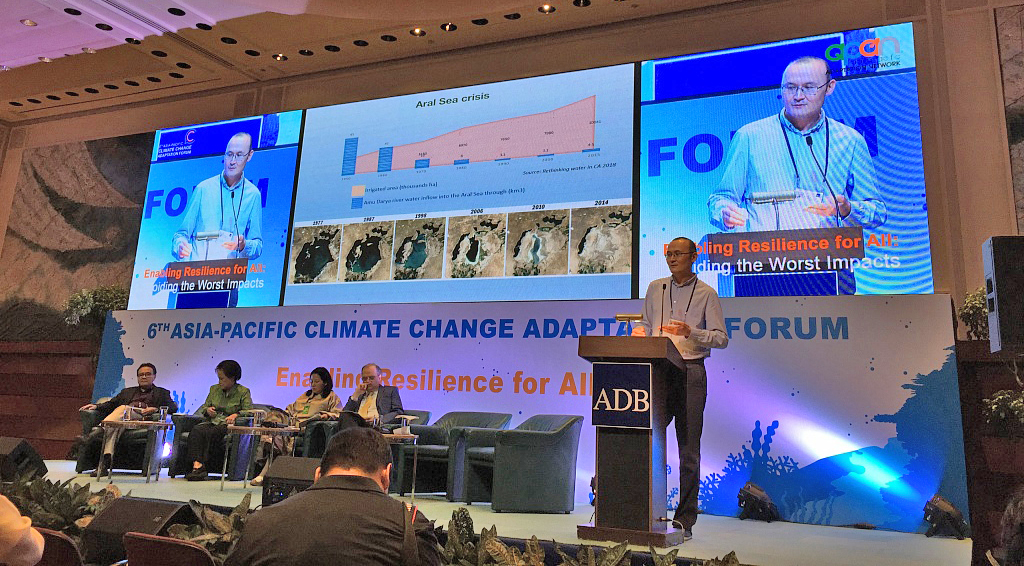
Participation in such events gives Central Asian specialists access to international expertise, and for CAREC, opportunities to expand cooperation, as well as opportunities to represent the interests of the region on international platforms. For example, last year CAREC joined the International Coalition for Green Development on the Belt and Road, which aims to promote long-term and environmentally friendly growth of the mega-project to support the 17 Sustainable Development Goals.
Coalition activities will mainly focus on the environmental sustainability of the Belt and Road initiative across five priorities: policy coordination, coordination of infrastructure facilities, free trade, financial integration, and building connections between people. Based on the interests of the region, CAREC will contribute to the work of the initiative and help to ensure the dynamic development of our region in harmony with the environment. “We should never oppose the economic development of our countries to the environment. These are compatible things in the modern world, ”notes the Executive Director of CAREC, Dr Iskandar Abdullaev.
It should be emphasized that in 2018, CAREC participated in the annual meeting of the Chinese Council for International Cooperation in Environment and Development (CCICED) for the second time. CAREC Executive Director Dr Iskandar Abdullaev is a special advisor to CCICED from 2017 to 2021.
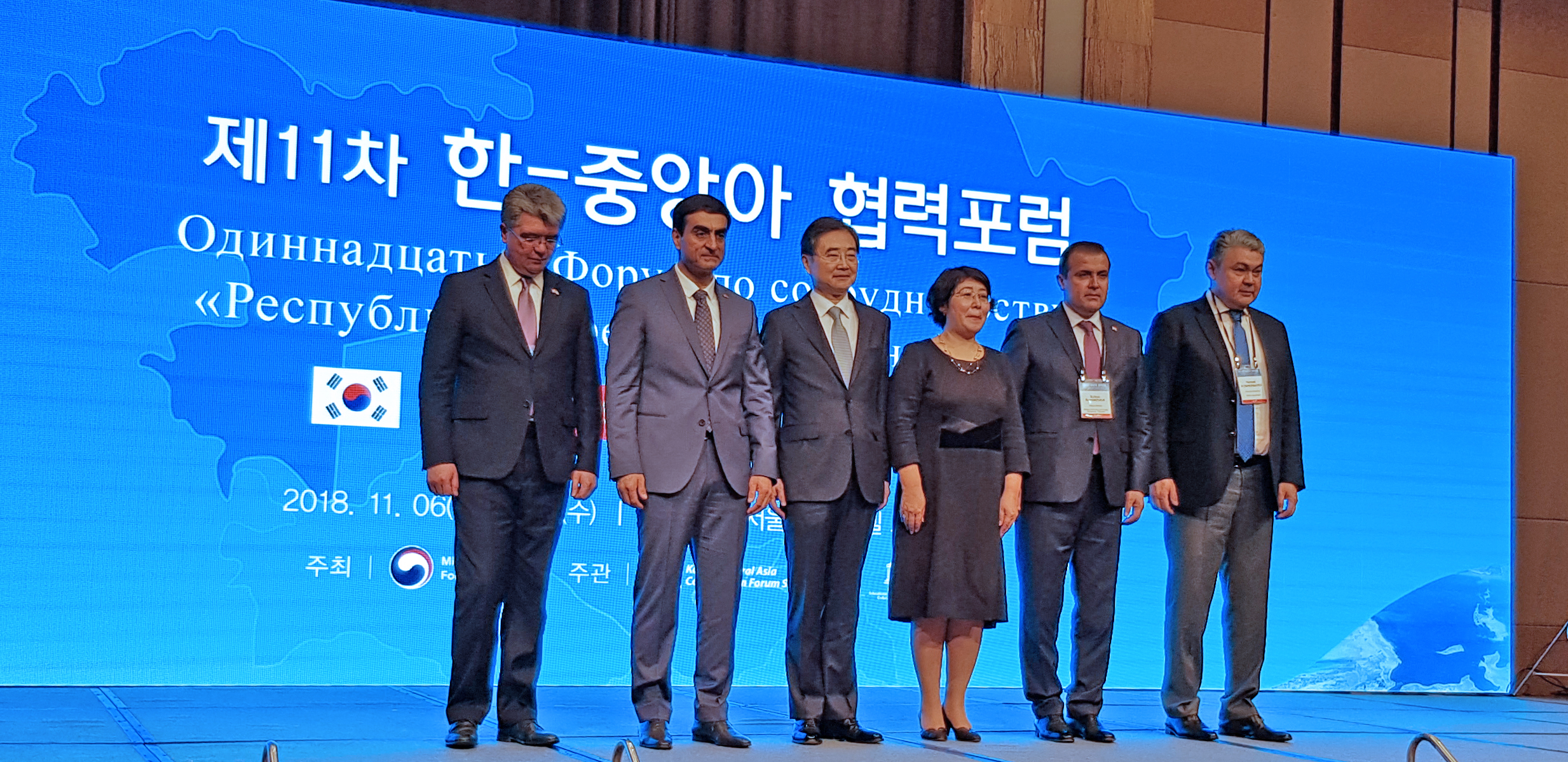
In addition, the Regional Environmental Centre for Central Asia contributed to the work of the 11th Korea-Central Asia Cooperation Forum. The forum participants paid special attention to the efficient use of water resources and environmental protection. Dr Iskandar Abdullaev spoke about water resources in Central Asia, and also presented CAREC vision on water partnership between the Republic of Korea and the Central Asian region. Taking into account the experience of Korea in the field of effective water management and the implementation of scientific research, Dr Abdullaev highlighted the most relevant areas of partnership: water accounting, data collection and use, forecasting, effective and sustainable water management.
Also, 2018 was remembered by the fact that CAREC received the role of the Secretariat of the High-Level Dialogue Platform of the Swiss Blue Peace Central Asia Initiative. Blue Peace Initiative is a high-level dialogue platform. It is carried out in several countries of the world and is aimed at transforming transboundary waters into a tool for building peace and sustainability. Based on more than 25 years of experience in cooperation on transboundary water management, Switzerland has initiated this joint dialogue in Central Asia. This dialogue is aimed at strengthening cooperation in water resources management in the region through the exchange of knowledge and data.
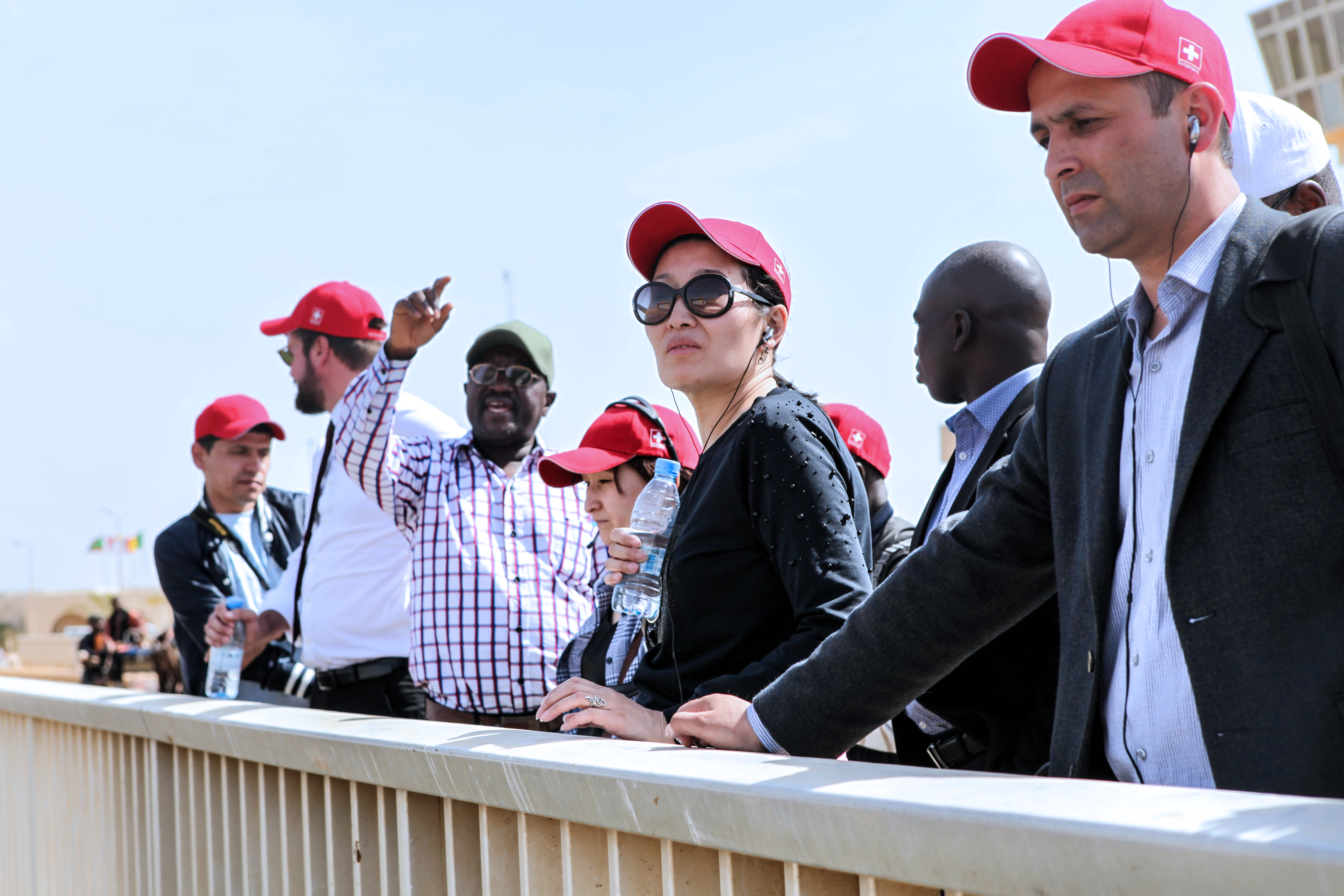
All listed events and meetings will be the basis for the forthcoming work of CAREC in 2019. The organization has important responsibilities: to promote the idea of coordinating the efforts and resources of partners, to promote the greening of the regional economies.
Plans for 2019
The region faces many transboundary challenges: the global economic crisis, population growth, urbanization, an increasing number of natural disasters, migration, and climate change. These challenges require new approaches, skills and platforms in the region that will work together. On the other hand, the events of the past year showed that a partnership atmosphere dominates in Central Asia - even the most pressing issues were reflected in the high-level agenda. Based on this, acting within the framework of its mission and development strategy, CAREC will continue to develop as a centre of knowledge and innovation.
Another important action for the development of the organization in the coming years is the development of online education and web resources of CAREC as tools for the transfer and creation of new knowledge. Cooperation with the governments of the countries of Central Asia and regional organizations working in the field of environmental protection will be continued and strengthened. In addition, CAREC will continue to search for and implement sustainable cooperation mechanisms with NGOs and the private sector. Also in 2019, the centre will look for new project and partnership opportunities.
